Filter by
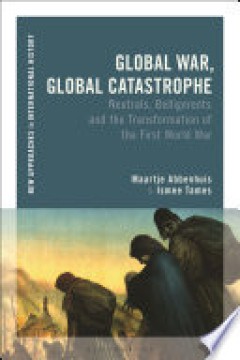
Global war, global catastrophe : neutrals, belligerents and the transformatio…
Winner of the World War One Historical Association’s 2021 Norman B. Tomlinson, Jr. Prize Global War, Global Catastrophe presents a history of the First World War as an all-consuming industrial war that forcibly reshaped the international environment and, with it, impacted the futures of all the world’s people. Narrated chronologically, and available open access, the authors identify key the…
- Edition
- 13
- ISBN/ISSN
- 9781474275880
- Collation
- 248 p
- Series Title
- -
- Call Number
- 940.3 MAA g
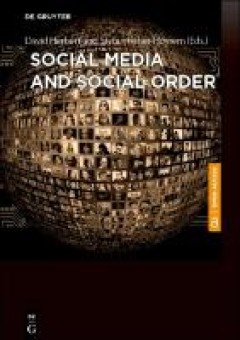
Social Media and Social Order
This book addresses the relationship between social media and social order at multiple scales and sites, from city neighborhoods to national politics, to how the data harvested by transnational corporations influence lives worldwide. It provides insights into how diverse social worlds are being reshaped by social media, analysis of what this means, and reflection on how critical publics might c…
- Edition
- -
- ISBN/ISSN
- 9788366675612
- Collation
- ix, 149p ; ill.
- Series Title
- -
- Call Number
- 302.231 HER s
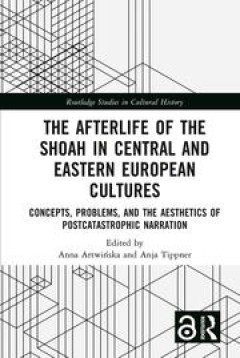
The afterlife of the Shoah in Central and Eastern European cultures : concept…
The Afterlife of the Shoah in Central and Eastern European Cultures is a collection of essays by literary scholars from Germany, the US, and Central Eastern Europe offering insight into the specific ways of representing the Shoah and its aftereffects as well as its entanglement with other catastrophic events in the region. Introducing the conceptual frame of postcatastrophe, the collected es…
- Edition
- -
- ISBN/ISSN
- 9781003050544
- Collation
- xii ; 360p : ill.
- Series Title
- -
- Call Number
- 808.80358405318 THE t
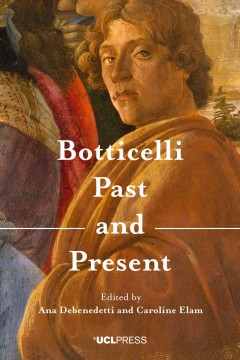
Botticelli past and present
The recent exhibitions dedicated to Botticelli around the world show, more than ever, the significant and continued debate about the artist. Botticelli Past and Present engages with this debate. The book comprises four thematic parts, spanning four centuries of Botticelli’s artistic fame and reception from the fifteenth century. Each part comprises a number of essays and includes a short intr…
- Edition
- -
- ISBN/ISSN
- 9781787354593
- Collation
- xix, 307 p. ill;
- Series Title
- -
- Call Number
- 759.5 BOT A
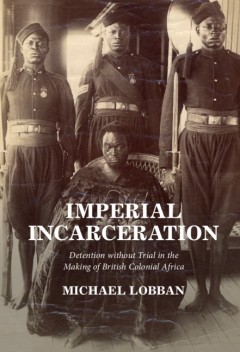
Imperial incarceration : detention without trial in the making of British col…
For nineteenth-century Britons, the rule of law stood at the heart of their constitutional culture, and guaranteed the right not to be imprisoned without trial. At the same time, in an expanding empire, the authorities made frequent resort to detention without trial to remove political leaders who stood in the way of imperial expansion. Such conduct raised difficult questions about Britain's …
- Edition
- -
- ISBN/ISSN
- 9781009004848
- Collation
- xii, 450p.
- Series Title
- Studies in legal history
- Call Number
- 345.960231 LOB i
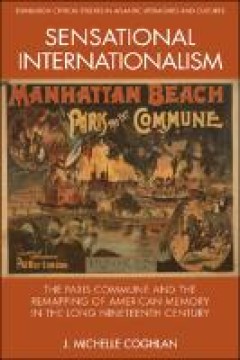
Sensational internationalism : the Paris Commune and the remapping of America…
In refocusing attention on the Paris Commune as a key event in American political and cultural memory, Sensational Internationalism radically changes our understanding of the relationship between France and the United States in the long nineteenth century.
- Edition
- -
- ISBN/ISSN
- 9781474411226
- Collation
- xii, 240 p. : ill.
- Series Title
- -
- Call Number
- 970.980 COG s

The citizen lobby : from capacity to influence
The Internet holds endless opportunities for exchange and dialogue and the promise of developing a better democratic model. Day-to-day politics are largely driven by economic lobbies in the interest of what Habermas calls their „generalised particularism,“ the threat to take jobs and tax revenues elsewhere. Citizens’ influence over politicians is twofold: they are asked for their input in…
- Edition
- -
- ISBN/ISSN
- 9783957960467
- Collation
- viii, 169 p.
- Series Title
- -
- Call Number
- 322.4 THO t
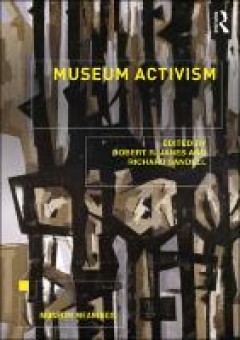
Museum activism
Only a decade ago, the notion that museums, galleries and heritage organisations might engage in activist practice, with explicit intent to act upon inequalities, injustices and environmental crises, was met with scepticism and often derision. Seeking to purposefully bring about social change was viewed by many within and beyond the museum community as inappropriately political and antithetical…
- Edition
- 13
- ISBN/ISSN
- 9781351251044
- Collation
- xxix, 406 p. : ill.
- Series Title
- -
- Call Number
- 069 JAN m
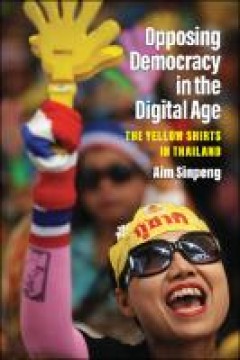
Opposing democracy in the digital age : the Yellow Shirts in Thailand
Opposing Democracy in the Digital Age is about why ordinary people in a democratizing state oppose democracy and how they leverage both traditional and social media to do so. Aim Sinpeng focuses on the people behind popular, large-scale antidemocratic movements that helped bring down democracy in 2006 and 2014 in Thailand. The yellow shirts (PAD—People’s Alliance for Democracy) that are the…
- Edition
- 13
- ISBN/ISSN
- 9780472128563
- Collation
- xiii, 270 p.
- Series Title
- -
- Call Number
- 322.4209593 SIN o
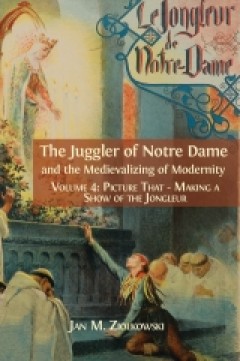
The juggler of Notre Dame and the medievalizing of modernity : volume 4 pictu…
This ambitious and vivid study in six volumes explores the journey of a single, electrifying story, from its first incarnation in a medieval French poem through its prolific rebirth in the nineteenth and twentieth centuries. The Juggler of Notre Dame tells how an entertainer abandons the world to join a monastery, but is suspected of blasphemy after dancing his devotion before a statue of the M…
- Edition
- -
- ISBN/ISSN
- 9781783745319
- Collation
- 510 p. : ill. ; 25.4 cm.
- Series Title
- -
- Call Number
- 841.109 ZIO t
 Computer Science, Information & General Works
Computer Science, Information & General Works  Philosophy & Psychology
Philosophy & Psychology  Religion
Religion  Social Sciences
Social Sciences  Language
Language  Pure Science
Pure Science  Applied Sciences
Applied Sciences  Art & Recreation
Art & Recreation  Literature
Literature  History & Geography
History & Geography